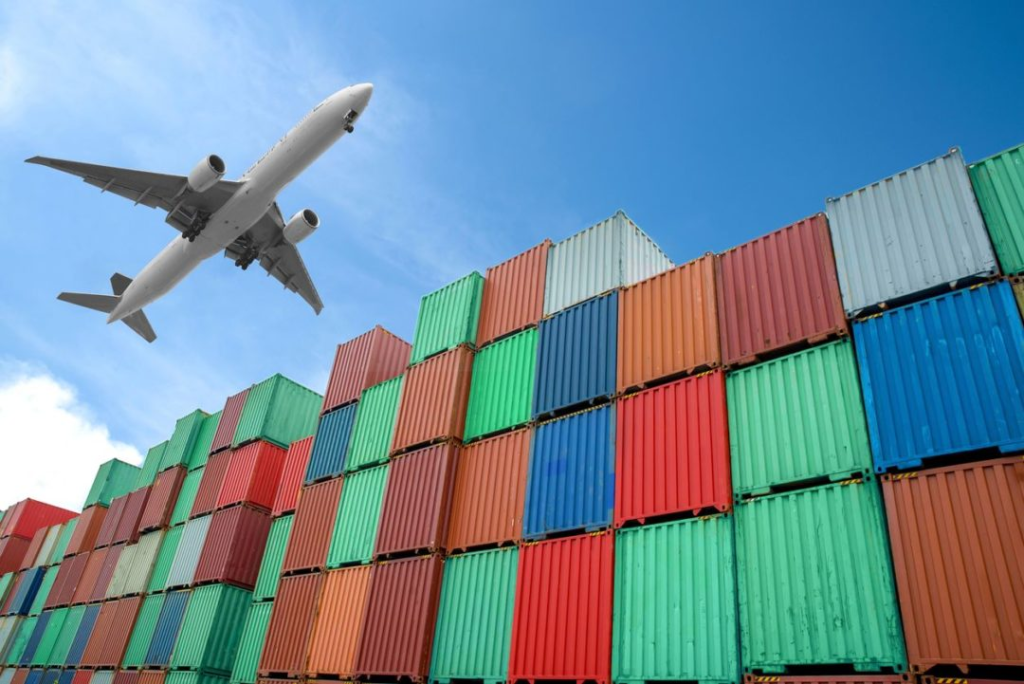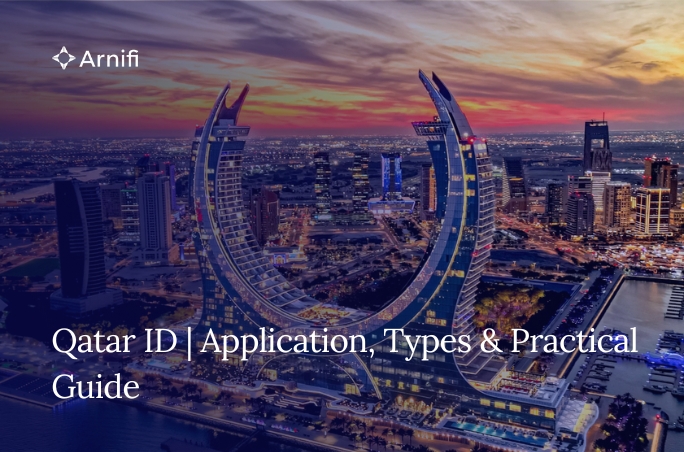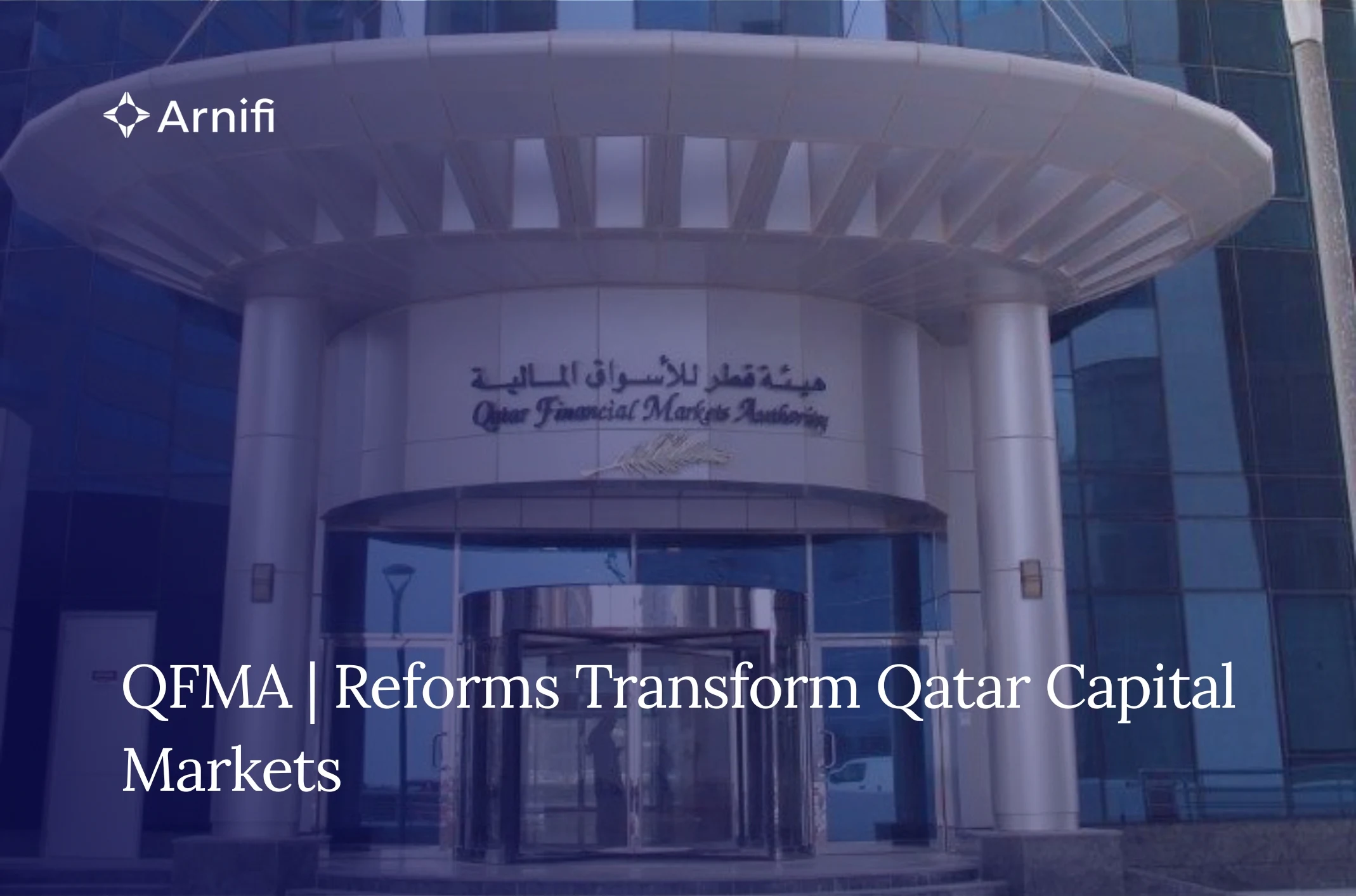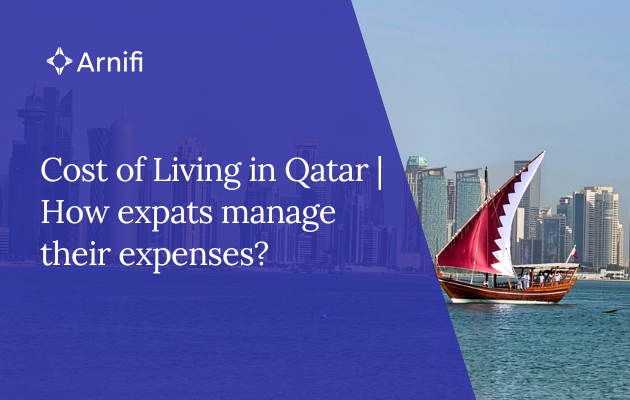Logistics and Supply Chain Management in Qatar Free Zones.
by Shethana Jun 17, 2024  14 MIN READ
14 MIN READ

LOGISTICS AND SUPPLY CHAIN MANAGEMENT IN QATAR
The logistics sector in Qatar has witnessed remarkable growth in recent years, mainly driven by the country’s efforts to develop its infrastructure and enhance its position as a global logistics hub. Qatar’s strategic location between Asia and Europe has made it an attractive choice for companies looking to optimize their supply chain networks. With the ongoing shift in the global supply chain network, Qatar has emerged as a key player, offering excellent connectivity and efficient logistics services. The collaboration between QFZ and FedEx Logistics further strengthens Qatar’s standing in the logistics and supply chain management industry, positioning it as a hub for global commerce.
Key Components of Supply Chain Management in Qatar Free Zones
Effective supply chain management is crucial in ensuring the smooth flow of goods and services in Qatar’s free zones. The Qatar Free Zones Authority (QFZA) plays a vital role in overseeing and regulating supply chain activities in these zones. QFZA provides support and guidance to businesses operating in the free zones, ensuring compliance with regulations and promoting best practices in supply chain management. Key components of supply chain management in Qatar’s free zones include efficient warehousing solutions, advanced transportation networks, and the implementation of technology-driven solutions to enhance transparency and efficiency.
Innovative Warehousing Solutions
Warehousing is a critical component of supply chain management in Qatar’s free zones. The availability of innovative warehousing solutions ensures the efficient storage and distribution of goods. Some key features of warehousing in Qatar’s free zones include:
- State-of-the-art warehousing facilities equipped with modern technology and infrastructure.
- Integration with global logistics networks, such as the global network of FedEx, enabling seamless flow of goods.
- Strategically located warehouses to optimize transportation and reduce lead times.
- Advanced inventory management systems to track and manage stock levels effectively.
- Strict adherence to quality standards and safety regulations to ensure the integrity of stored goods.
These innovative warehousing solutions contribute to the overall efficiency and effectiveness of supply chain management in Qatar’s free zones.
Advanced Transportation Networks
In addition to warehousing solutions, advanced transportation networks are vital for efficient supply chain management in Qatar’s free zones. Qatar’s strategic location, coupled with its world-class transportation infrastructure, enables seamless connectivity and smooth movement of goods. Hamad International Airport, one of the busiest airports in the region, serves as a major gateway for air transportation, connecting Qatar to global markets. This ensures faster delivery and reduced transit times for goods moving in and out of Qatar’s free zones. The availability of advanced transportation networks, including air freight and road transportation, further enhances the efficiency and competitiveness of supply chain management in Qatar.
Major Players in Qatar Free Zones Logistics
The logistics industry in Qatar’s free zones is comprised of major players, including international logistics companies and local businesses. These companies leverage the benefits offered by Qatar’s free zones to establish regional operations and expand their global footprint. The collaboration between the Qatar Free Zones Authority and FedEx Logistics highlights the significance of major players in Qatar’s free zones logistics sector. Sheikh Mohammed H. F. Al-Thani, CEO of QFZ, and Patrick Moebel, President and CEO of FedEx Logistics, are key figures leading this collaboration and driving the growth of logistics in Qatar’s free zones.
Role of Qatar Free Zones Authority (QFZA)
The Qatar Free Zones Authority (QFZA) plays a crucial role in overseeing and regulating the operations of free zones in Qatar. As an independent authority, QFZA is responsible for setting policies, attracting investments, and promoting economic growth in the free zones. QFZA provides a supportive business environment by offering incentives, simplifying administrative processes, and ensuring compliance with regulations. The authority collaborates with key stakeholders to facilitate the establishment of businesses, including logistics companies, in the free zones. QFZA’s strategic initiatives and proactive approach contribute to the development of a vibrant logistics ecosystem in Qatar’s free zones.
Contributions of Major Logistics Companies
Major logistics companies, such as FedEx Logistics, contribute significantly to the growth and development of logistics in Qatar’s free zones. These companies bring their global network and expertise to the region, offering a wide range of logistics services and solutions. The establishment of regional logistics facilities by companies like FedEx Logistics enhances the capabilities and infrastructure available in Qatar’s free zones. These facilities serve as important hubs for regional and international cargo movement, enabling seamless connectivity between Asia and Europe. The contributions of major logistics companies play a pivotal role in strengthening supply chains, facilitating trade, and positioning Qatar as a preferred business destination.
Technological Advancements in Logistics
Technological advancements have revolutionized the logistics industry globally, and Qatar’s free zones are no exception. The adoption of technologies such as Artificial Intelligence (AI) and the Internet of Things (IoT) has enabled enhanced efficiency, real-time tracking, and improved decision-making in supply chain management. Qatar’s free zones embrace these technological advancements to streamline operations, ensure transparency, and optimize resource utilization. Another significant technological innovation is the use of blockchain technology, which provides enhanced security, traceability, and efficiency in the management of supply chains. These technological advancements contribute to the overall competitiveness and attractiveness of Qatar’s free zones for businesses in the logistics sector.
Implementation of AI and IoT in Supply Chains
The implementation of Artificial Intelligence (AI) and the Internet of Things (IoT) in supply chains has revolutionized the logistics industry in Qatar’s free zones. AI-powered systems analyze vast amounts of data, enabling predictive analytics, demand forecasting, and optimization of routes and operations. IoT devices, such as sensors and RFID tags, provide real-time tracking and monitoring of goods, ensuring better visibility and control over supply chain activities. The integration of AI and IoT technologies in supply chains enhances operational efficiency, reduces costs, and improves customer satisfaction. By embracing these innovative technologies, businesses operating in Qatar’s free zones can stay ahead of the competition and meet the evolving demands of the market.
Blockchain for Transparency and Efficiency
Blockchain technology has emerged as a game-changer in the logistics industry, and Qatar’s free zones are leveraging its potential to enhance transparency and efficiency in supply chain management. Blockchain provides a decentralized and immutable ledger that records every transaction and movement of goods, ensuring transparency and traceability. This technology facilitates secure and efficient collaboration between multiple stakeholders in the supply chain, reducing paperwork, eliminating intermediaries, and enhancing trust. By implementing blockchain solutions, businesses in Qatar’s free zones can streamline processes, reduce costs, and mitigate the risk of fraud. The adoption of blockchain technology further strengthens Qatar’s position as a forward-thinking and technologically advanced hub for logistics and supply chain management.
Challenges Faced by Logistics in Qatar Free Zones
While Qatar’s free zones offer significant advantages for logistics and supply chain management, they also face unique challenges. Geopolitical constraints and regional instability can impact the smooth movement of goods and services. Additionally, global supply chain disruptions, such as natural disasters or pandemics, can pose challenges for businesses operating in the free zones. However, Qatar’s strategic location and commitment to infrastructure development mitigate these challenges to a large extent. The collaboration between QFZ and FedEx Logistics aims to address these challenges by enhancing the resilience and efficiency of logistics in Qatar’s free zones.
Navigating Geopolitical Constraints
In the world of logistics and supply chain management, geopolitical constraints can pose significant challenges. However, Qatar’s strategic location and the establishment of the regional logistics facility in Ras Bufontas Free Zone will help navigate these constraints effectively. The facility will serve as a regional hub, connecting global commerce between Asia and Europe. With its proximity to Hamad International Airport and Qatar Airways, the facility will provide seamless access to air transportation and freight. This will not only improve customs processing times but also enhance the efficiency of supply chains. By overcoming these geopolitical constraints, Qatar’s free zones are well-positioned to contribute to the growth of global commerce and strengthen their role as a vital link in the global supply chain network.
Adapting to Global Supply Chain Disruptions
The global supply chain network is constantly evolving, and disruptions can have a significant impact on logistics and supply chain management. Qatar’s free zones, with the establishment of the regional logistics facility, are well-equipped to adapt to these disruptions. The collaboration between QFZ and FedEx Logistics ensures that businesses operating in the free zones have access to a robust and resilient supply chain network. This will enable them to navigate global supply chain disruptions effectively and minimize their impact on the flow of goods. With a shifting global supply chain network, the flexibility and agility offered by Qatar’s free zones will be a key advantage for businesses looking to establish themselves in the region.
Government Policies and Their Impact
The government policies in Qatar play a crucial role in shaping the logistics and supply chain landscape in the country’s free zones. The regulatory framework established by the Qatar Free Zones Authority (QFZ) provides a supportive environment for businesses to thrive. These policies create incentives for businesses to operate in the free zones, offering outstanding opportunities for growth and expansion. By aligning the government policies with the needs of the logistics sector, Qatar’s free zones have become an attractive destination for businesses looking to establish a strong presence in the region. The government’s commitment to creating a favorable business environment has contributed to the growth and success of the logistics industry in Qatar.
Regulatory Framework Supporting Logistics Growth
The regulatory framework established by the Qatar Free Zones Authority (QFZ) has been instrumental in supporting the growth of the logistics industry in the country’s free zones. The framework provides a clear set of guidelines and regulations that businesses in the logistics sector must adhere to. This creates a level playing field and ensures fair competition among the companies operating in the free zones. Moreover, the regulatory framework also focuses on promoting innovation and technological advancements in the logistics industry. By creating a conducive environment for logistics companies to thrive, Qatar’s free zones are able to offer a strong value proposition to businesses looking to establish their presence in the region. This, in turn, contributes to the overall growth and development of the state.
Incentives for Businesses in Free Zones
One of the key advantages of setting up a logistics company in Qatar’s free zones is the range of incentives offered by the government. These incentives are designed to attract businesses and encourage their growth in the region. From tax exemptions to simplified customs procedures, the incentives create a favorable business environment for logistics companies. Additionally, the free zones provide outstanding opportunities for businesses to expand their operations and access global markets. The strategic location of the free zones, coupled with the world-class infrastructure and connectivity, makes them an ideal choice for logistics companies looking to establish a strong presence in the Middle East. By leveraging these incentives and opportunities, businesses can enhance their competitiveness and drive growth in the logistics sector.
Future of Logistics and Supply Chain Management in Qatar Free Zones

The future of logistics in Qatar’s free zones is poised for growth and innovation. Technological integrations are expected to play a crucial role in enhancing operational efficiency and streamlining supply chain processes. From advanced analytics to automation, logistics companies in the free zones will leverage technology to stay ahead of the curve. Additionally, there is a growing focus on green logistics and sustainability. With Qatar hosting the World Cup, there is increased emphasis on reducing the environmental impact of logistics operations. This presents opportunities for logistics companies to adopt eco-friendly practices and contribute to a more sustainable supply chain.
Predictions on Technological Integrations
The future of logistics in Qatar’s free zones will witness significant technological integrations. Predictions indicate that advanced analytics, artificial intelligence, and automation will be at the forefront of this transformative journey. These technological advancements will enhance operational efficiency, optimize supply chain processes, and enable logistics companies to make data-driven decisions. With real-time tracking, predictive analytics, and intelligent automation, logistics companies will be better equipped to manage their operations and meet customer expectations. The integration of technology will also facilitate seamless collaboration and communication across the supply chain, enabling end-to-end visibility and transparency. By embracing technology, logistics companies in Qatar’s free zones will be at the forefront of industry innovation, driving growth and delivering superior customer experiences.
Potential for Green Logistics and Sustainability
The World Cup in Qatar has placed a spotlight on the potential for green logistics and sustainability in the country’s free zones. With increased awareness of environmental issues, there is a growing demand for eco-friendly logistics solutions. Qatar’s free zones are well-positioned to meet this demand by adopting sustainable practices and promoting green logistics. From optimizing transportation routes to reducing carbon emissions, logistics companies in the free zones can contribute to a more sustainable supply chain. By embracing renewable energy sources, implementing waste management strategies, and promoting environmental stewardship, Qatar’s free zones can set an example for the logistics industry. This focus on green logistics and sustainability will not only benefit the environment but also enhance the reputation of the free zones as responsible and forward-thinking business destinations.
Conclusion
In conclusion, the logistics and supply chain management landscape in Qatar Free Zones is rapidly evolving, driven by technological advancements and innovative solutions. The strategic location, advanced infrastructure, and supportive government policies have attracted major players, contributing significantly to Qatar’s economy. Despite challenges like geopolitical constraints, the sector continues to adapt and thrive. With a focus on sustainability and efficient operations, the future of logistics in Qatar Free Zones looks promising, with a potential for further technological integrations and green logistics practices. As the industry progresses, ensuring compliance with regulatory frameworks and leveraging incentives for businesses will be key to sustained growth and success.
Frequently Asked Questions
What are the benefits of setting up a logistics company in Qatar Free Zones?
Setting up a logistics company in Qatar’s free zones offers several benefits. The strategic location of the free zones provides easy access to global markets. The supportive regulatory framework and incentives create a favorable business environment for logistics companies. These factors, combined with the world-class infrastructure and connectivity, make Qatar’s free zones an ideal choice for businesses looking to expand their global reach.
How does Qatar Free Zones Authority facilitate supply chain operations?
The Qatar Free Zones Authority (QFZ) facilitates supply chain operations by providing a supportive regulatory framework and incentives for businesses. With their regional expertise and extensive network, QFZ ensures seamless connectivity and efficient operations for businesses operating in the free zones. This facilitates the smooth flow of goods and enhances supply chain efficiency on a global scale.
What measures are being taken to ensure sustainability in logistics operations?
Measures are being taken to ensure sustainability in logistics operations in Qatar’s free zones. Green initiatives, such as optimizing transportation routes and reducing carbon emissions, are being implemented. Renewable energy sources and waste management strategies are also being adopted. These measures aim to minimize the environmental impact of logistics operations and position Qatar as a world’s gateway for sustainable logistics.
About Arnifi
Arnifi is digital first Corporate service provider helping companies enter the Middle East region, starting with UAE and Saudi Arabia markets. Founded and backed by professionals from Amazon, Souq and other large companies operating in KSA – the team understands what it takes to succeed as a startup in both UAE and Saudi Arabian markets, apart from going through the setup process multiple times. Arnifi will provide a truly digital experience to entry and scale up of companies both UAE and Saudi Arabia. Discover tailored solutions and strategic partnerships that propel your business forward. Check out at – www.Arnifi.com for more details.
ALSO READ: Tax incentives and exemptions in Qatar
Top Qatar Packages

Related Articles
Top Qatar Packages



